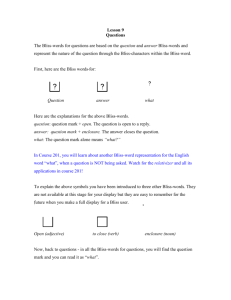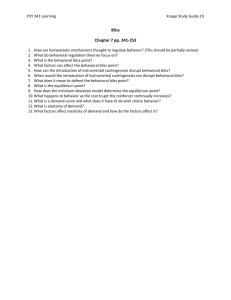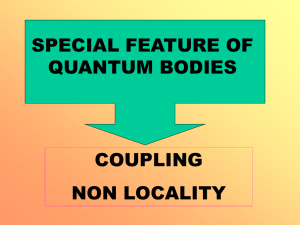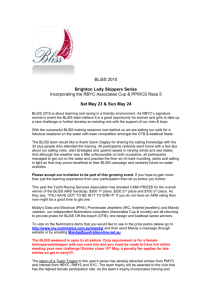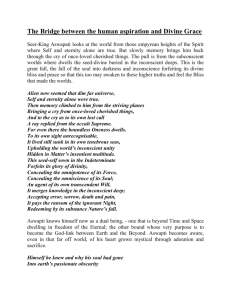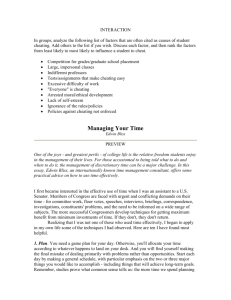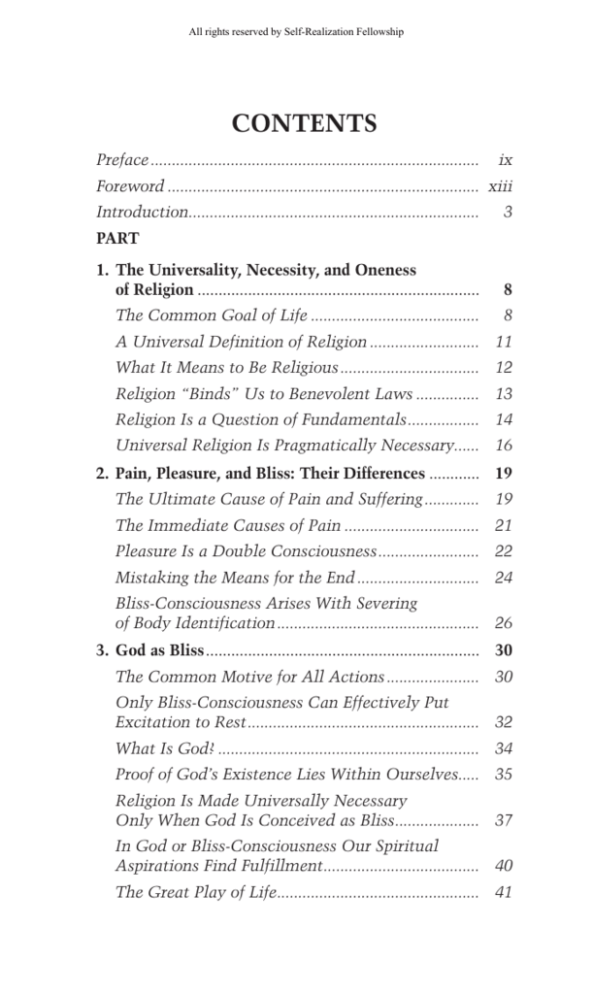
All rights reserved by Self-Realization Fellowship
CONTENTS
Preface ..............................................................................
ix
Foreword .......................................................................... xiii
Introduction.....................................................................
3
PART
1. The Universality, Necessity, and Oneness
of Religion ...................................................................
8
The Common Goal of Life ........................................
8
A Universal Definition of Religion .......................... 11
What It Means to Be Religious ................................. 12
Religion “Binds” Us to Benevolent Laws ............... 13
Religion Is a Question of Fundamentals ................. 14
Universal Religion Is Pragmatically Necessary...... 16
2. Pain, Pleasure, and Bliss: Their Differences ............ 19
The Ultimate Cause of Pain and Suffering ............. 19
The Immediate Causes of Pain ................................ 21
Pleasure Is a Double Consciousness ........................ 22
Mistaking the Means for the End ............................. 24
Bliss-Consciousness Arises With Severing
of Body Identification ................................................ 26
3. God as Bliss ................................................................. 30
The Common Motive for All Actions ...................... 30
Only Bliss-Consciousness Can Effectively Put
Excitation to Rest ....................................................... 32
What Is God? .............................................................. 34
Proof of God’s Existence Lies Within Ourselves..... 35
Religion Is Made Universally Necessary
Only When God Is Conceived as Bliss .................... 37
In God or Bliss-Consciousness Our Spiritual
Aspirations Find Fulfillment..................................... 40
The Great Play of Life ................................................ 41
All rights reserved by Self-Realization Fellowship
4. Four Fundamental Religious Methods ..................... 44
The Need for Religious Methods .............................. 44
The “Son of God” and the “Son of Man”................ 45
The Origin of Sectarianism ....................................... 46
Four Fundamental Religious Methods:
1. The Intellectual Method........................................
2. The Devotional Method ........................................
3. The Meditational Method .....................................
4. The Scientific Method or Yoga ..............................
47
49
51
53
Physiological Explanation of the
Scientific Method ....................................................... 55
Practice of Scientific Method Results in Freedom
From Bodily and Mental Distractions ..................... 57
Continued Practice of Scientific Method Leads to
Bliss-Consciousness, or God ..................................... 59
Scientific Method Works Directly With the
Life-Force ..................................................................... 61
5. Instruments of Knowledge and the Theoretical
Validity of Religious Methods ................................... 64
Three Instruments of Knowledge:
1. Perception................................................................ 65
2. Inference .................................................................. 67
3. Intuition .................................................................. 70
By Intuition God Can Be Realized in All
His Aspects.................................................................. 72
About the Author ............................................................ 74
Paramahansa Yogananda: A Yogi in Life and Death.... 78
Additional Resources on the Kriya Yoga Teachings
of Paramahansa Yogananda ............................................ 79
Self-Realization Fellowship Lessons ............................. 80
Aims and Ideals of Self-Realization Fellowship ........... 81
Also by Paramahansa Yogananda .................................. 84
All rights reserved by Self-Realization Fellowship
PART 1
The Universality, Necessity,
and Oneness of Religion
The Common Goal of Life
First we must know what religion is; then only
may we judge whether it is necessary for all of us
to be religious.
Without necessity there is no action. Every action of ours has an end of its own for which we
perform it. People of the world act variously to accomplish various ends; there is a multiplicity of
ends determining the actions of men in the world.
But is there any common and universal end of
all the actions of all the people of the world? Is there
any common, highest necessity for all of us, which
prompts us to all actions? A little analysis of the motives and ends of men’s actions in the world shows
that, though there are a thousand and one proximate
or immediate ends of men in regard to the particular
calling or profession that they take up, the ultimate
end — which all other ends merely subserve — is the
avoidance of pain and want, and the attainment of
permanent Bliss. Whether we can permanently avoid
pain and want, and obtain Bliss, is a separate question; but as a matter of fact, in all our actions we
obviously try to avoid pain and to gain pleasure.
Why does a man serve as an apprentice? Because he wishes to become an expert in a certain
8
All rights reserved by Self-Realization Fellowship
The Universality, Necessity, and Oneness of Religion
9
business. Why does he engage in that particular
business? Because money can be earned therein.
Why should money be earned at all? Because it
will satisfy personal and family wants. Why should
wants be fulfilled? Because pain will thereby be removed and happiness be gained.
As a matter of fact, happiness and Bliss are not
the same thing. We all aim at Bliss, but through a
great blunder we imagine pleasure and happiness to
be Bliss. How that has come to be so will be shown
presently. The ultimate motive is really Bliss, which
we feel inwardly; but happiness — or pleasure — has
taken its place, through our misunderstanding, and
pleasure has come to be regarded as the ultimate
motive.
Thus we see that the fulfillment of some want;
removal of some pain, physical or mental, from the
slightest to the acutest; and the attainment of Bliss
form our ultimate end. We may not question further why Bliss is to be gained, for no answer can
be given. That is our ultimate end, no matter what
we do — enter a business, earn money, seek friends,
write books, acquire knowledge, rule kingdoms, donate millions, explore countries, look for fame, help
the needy, become philanthropists, or embrace martyrdom. And it will be shown that the seeking of
God becomes a real fact to us when our true end is
kept rigorously in view. Millions may be the steps,
myriad may be the intermediate acts and motives;
but the ultimate motive is always the same — to
attain permanent Bliss, even though it be through
a long chain of actions.
Man usually likes to go along the chain to get
to the final end. He may commit suicide to end
All rights reserved by Self-Realization Fellowship
10
The Science of Religion
some pain, or perpetrate murder to get rid of some
form of want or pain or some cruel heart-thrust,
thinking he will thereby attain a real satisfaction or
relief, which he mistakes for Bliss. But the point to
notice is that here, too, is the same working (though
wrongly) toward the ultimate end.
Someone may say, “I do not care anything
about pleasure or happiness. I live life to accomplish
something, to achieve success.” Another says: “I
want to do good in the world. I do not care whether
I am in pain or not.” But if you look into the minds
of these people, you will find that there is the same
working toward the goal of happiness. Does the first
man want a success that has in its achievement no
pleasure or happiness? Does the second want to do
good to others, yet himself get no happiness in doing it? Obviously not. They may not mind a thousand and one physical pains or mental sufferings
inflicted by others, or arising out of situations incidental to the pursuit of success or the doing of good
to others; but because the one finds great satisfaction in success, and the other intensely enjoys the
happiness of doing good to others, the former seeks
success, and the latter seeks others’ good, in spite
of incidental troubles.
Even the most altruistic motive and the sincerest intention of advancing the good of humanity, for
its own sake, have sprung from the basic urge for
a chastened personal happiness, approaching Bliss.
But it is not the happiness of a narrow self-seeker.
It is the happiness of a broad seeker of that “pure
self” that is in you and me and all. This happiness
is Bliss, a little alloyed. So with pure Bliss as a personal motive for altruistic action, the altruist is not
All rights reserved by Self-Realization Fellowship
The Universality, Necessity, and Oneness of Religion
11
laying himself open to the charge of narrow selfishness, for one cannot himself have pure Bliss unless
he is broad enough to wish and seek it for others,
too. That is the universal law.
A Universal Definition of Religion
So, if the motives for the actions of all men are
traced farther and farther back, the ultimate motive
will be found to be the same with all — the removal
of pain and the attainment of Bliss. This end being
universal, it must be looked upon as the most necessary one. And what is universal and most necessary
for man is, of course, religion to him. Hence, religion necessarily consists in the permanent removal
of pain and the realization of Bliss, or God. And
the actions that we must adopt for the permanent
avoidance of pain and the realization of Bliss or God
are called religious. If we understand religion in this
way, then its universality becomes obvious. For no
one can deny that he wants to avoid pain permanently and attain permanent Bliss. This must be universally admitted, since none can gainsay its truth.
Man’s very existence is bound up with it.
All want to live because they love religion. Even
if a man committed suicide it would be because he
loved religion, too; for by doing that he thinks he will
attain a happier state than he finds while living. At
any rate, he thinks he will be rid of some pain that is
bothering him. In this case his religion is crude, but
it is religion, just the same. His goal is perfectly right,
the same that all persons have; for all of them want to
obtain happiness, or Bliss. But his means is unwise.
Because of his ignorance, he does not know what will
bring him to Bliss, the goal of all men.
All rights reserved by Self-Realization Fellowship
12
The Science of Religion
What It Means to Be Religious
Thus, in one sense every man in the world is
religious, inasmuch as everyone is trying to get rid of
want and pain, and to gain Bliss. Everyone is working for the same goal. But in a strict sense only a
few in the world are religious, for only a few in the
world, though they have the same goal as all others, know the most effective means for removing,
permanently, all pain or want — physical, mental, or
spiritual — and gaining true Bliss.
The true devotee cannot hold a rigidly narrow
orthodox conception of religion, though that conception is, in a remote way, connected with the conception I am bringing out. If for some time you do
not go to church or temple, or attend any of its ceremonies or forms, even though acting religiously in
your daily life by being calm, poised, concentrated,
charitable, squeezing happiness from the most trying situations, then ordinary people of a pronounced
orthodox or narrow bent will nod their heads and
declare that, although you are trying to be good,
still, from the point of view of religion, or in the
eyes of God, you are “falling off,” as you did not of
late enter the precincts of the holy places.
While of course there cannot be any valid excuse for permanently keeping away from such holy
places, there cannot, on the other hand, be any legitimate reason for one’s being considered more
religious for attending church, if at the same time
one neglects to apply in daily life the principles that
religion upholds, that is, those that make ultimately
for the attainment of permanent Bliss. Religion is
not dovetailed with the pews of the church, nor is

